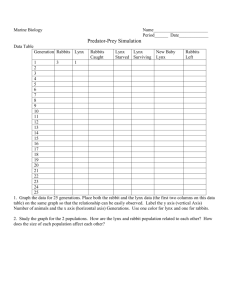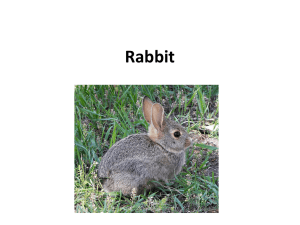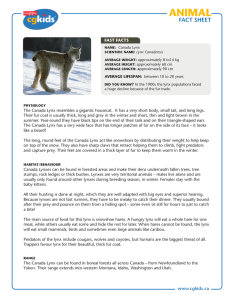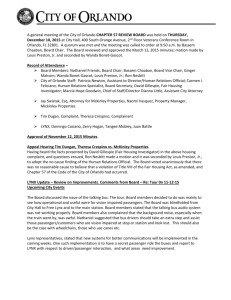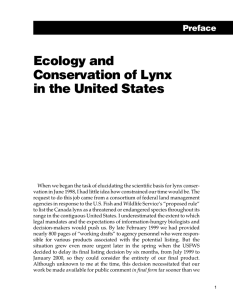RABBIT AND LYNX POPULATION The rabbit and lynx populations
advertisement
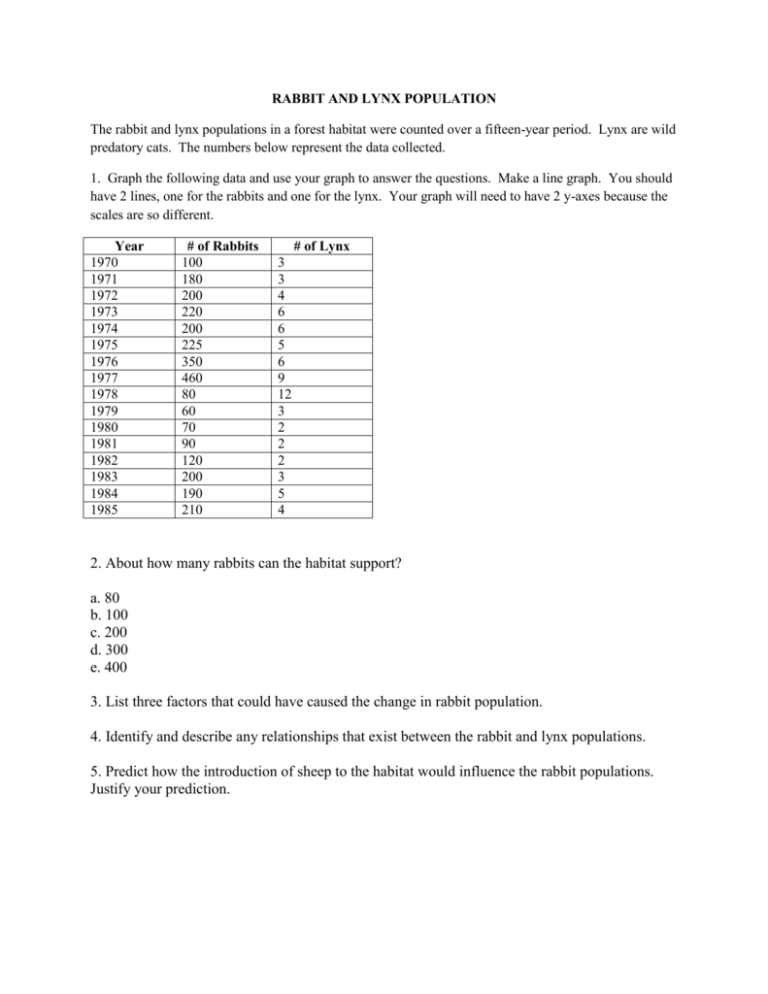
RABBIT AND LYNX POPULATION The rabbit and lynx populations in a forest habitat were counted over a fifteen-year period. Lynx are wild predatory cats. The numbers below represent the data collected. 1. Graph the following data and use your graph to answer the questions. Make a line graph. You should have 2 lines, one for the rabbits and one for the lynx. Your graph will need to have 2 y-axes because the scales are so different. Year 1970 1971 1972 1973 1974 1975 1976 1977 1978 1979 1980 1981 1982 1983 1984 1985 # of Rabbits 100 180 200 220 200 225 350 460 80 60 70 90 120 200 190 210 # of Lynx 3 3 4 6 6 5 6 9 12 3 2 2 2 3 5 4 2. About how many rabbits can the habitat support? a. 80 b. 100 c. 200 d. 300 e. 400 3. List three factors that could have caused the change in rabbit population. 4. Identify and describe any relationships that exist between the rabbit and lynx populations. 5. Predict how the introduction of sheep to the habitat would influence the rabbit populations. Justify your prediction. 6. Graph the following information on a different graph and use the graph to answer the following questions. Year 1970 1971 1972 1973 1974 1975 1976 1977 1978 1979 1980 1981 1982 1983 1984 1985 Average Rainfall 12.0" 11.5" 12.1" 11.8" 11.9" 18.1" 17.9" 11.5" 12.1" 11.7" 12.1" 11.7" 11.9" 12.5" 12.3" 11.6" 7. Compare your two graphs. Identify and describe any relationships that exist between the populations and the amount of rainfall. 8.a. Propose an explanation for the relationship described between the rabbit and lynx populations and rainfall. b. What data would you need to collect to support your explanation?
